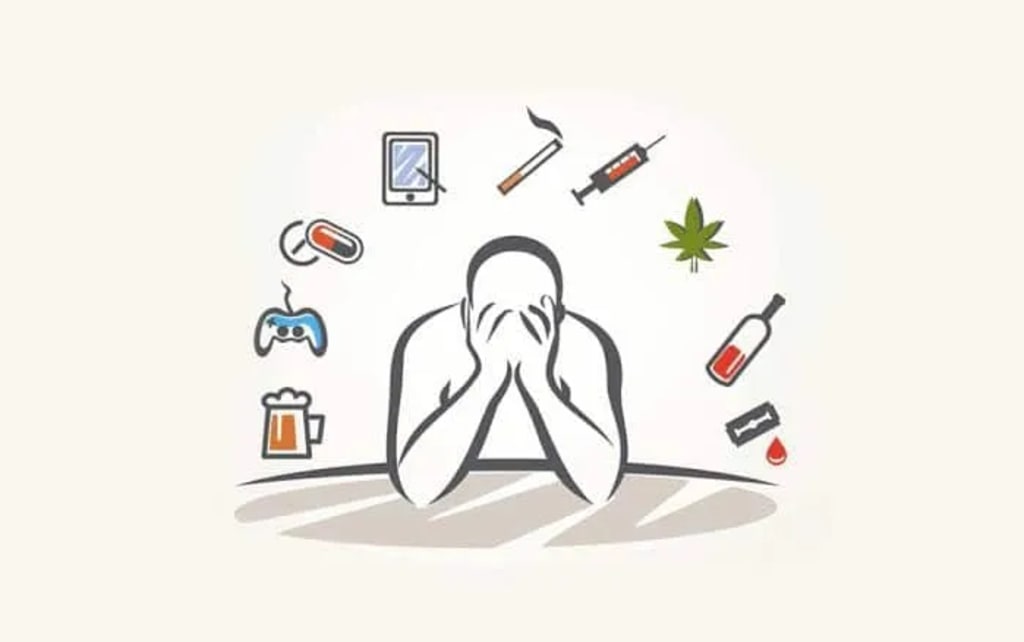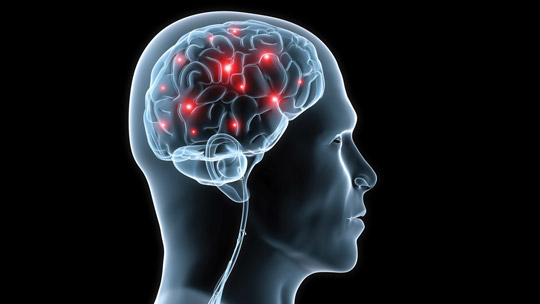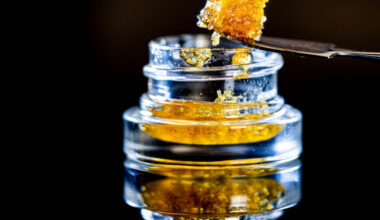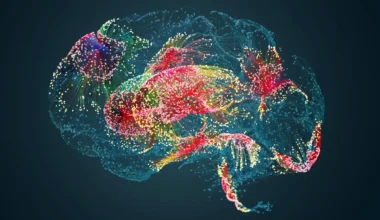When you hear addiction what often comes to your mind? Most times it’s compulsive substance use. it shouldn’t be a surprise because that is where society lays emphasis. Perhaps because its consequences seem more alarming than any kind of addiction if there is any at all. This article will help you understand exactly how addiction works in the brain. It will also help you identify different forms of addiction and how they can be identified.
Key Takeaways
- Addiction is the physical and psychological inability to stop consuming a chemical, drug, substance, or activity even though it is causing psychological and physical harm.
- Behavioral addiction is the intense desire or compulsion to continue engaging in rewarding or pleasurable behavior even when this behavior has obvious harmful consequences.
- Signs of behavioral addiction are the inability to control yourself even as it causes harm, feeling horrible and guilty afterward but engaged in it again, every day keeps being the last, and hiding the extent of the behavior.
- Behavioral addiction doesn’t need total quitting like substance use, most of these behaviors are things that are essential. It just needs self-control. You can also get support from psychologists and psychiatrists who have undergone training specifically for addiction problems.
What is Addiction?

Addiction is the physical and psychological inability to stop consuming a chemical, drug, substance, or activity even though it is causing psychological and physical harm. It is the primary and chronic disease of the brain circuitry that is responsible for modulating motivation, reward, and memory. When a person experiences an addiction, they lose control of how to use a substance or partake in an activity, and they become dependent on it and can’t cope normally with daily life as they used to.
From the above definition, I tried to emphasize the word ”activity”. This is to show you that addiction goes way beyond substance use it can be an activity or behavior. I will tell you a bit more about behavioral addiction. That is because it does not have as much attention, a couple of people see it as less important since it does not involve the intake of substances.
What is Behavioral Addiction?
Behavioral addiction is the intense desire or compulsion to continue engaging in rewarding or pleasurable behavior. Meanwhile, this behavior has obvious harmful consequences. Some refer to it as non-substance addiction or impulse control disorder. Some of the characteristics are intense cravings, compulsive, and repetitive involvement in rewarding non-substance-related behavior, despite consistent adverse consequences.
In substance addiction, some substances are much more addictive than others. That is to say that when you continue taking some particular substance, you are already at risk. You can refer to them as addictive substances, for example, cocaine, and heroin. In the same way, some behaviors are more addictive than others. I am certain that you can guess that addictive behaviors would be the right term for it. Behaviors that become addictions are mostly behaviors that are reinforcing, have rewards, and are pleasurable to us. I believe you can think of things, you do in your day-to-day activities that could become addictive.
Addiction is really a great deal, it is very dangerous and harmful to human mental and physical health. It even goes across as hurting the loved ones of the addict. I would be referring to addiction as a brain disease because it alters the normal functioning and structure of the brain. However, addicted persons seem to have no control over their life. For one to have self-control, some parts of the brain need to work just fine which is not the case in an addicted person.
On an extreme note, imagine a car without brakes, or better still with faulty brakes. I will try to explain how addiction works in the brain. Perhaps the next time you see an addicted person you might want to help them to get the help they need rather than blame them.
Addiction in the Brain
Here is a simplified explanation of how addiction works in the brain

Modern science and brain imaging have helped us understand that the brain of an addicted person and a normal person don’t function the same way. Addiction controls actions, problem-solving, and decision-making processes. So addicted persons might not be able to make rational decisions anymore. It is more like the brain starts rewiring when someone has an addiction. Now, let’s visit our biology.
The reward system of the brain is very important in the brain. It drives our behavior toward pleasurable stimuli and drives us away from painful ones. So you can imagine how important it is. Understanding our reward system helps to know why people get into addiction better.
Think about a time when you felt happy, had your best meal, or even gave someone you like a hug. This is exactly what happens in your brain;
When you experience pleasure your brain releases a neurotransmitter called dopamine. The Ventral Tegmental Area (VTA) produces it. They send the dopamine released to four parts of the brain which have dopamine receptors.
4 Parts of the Brain With Dopamine Receptors;
Amygdala (emotions):
Tells you the hug was a pleasant experience.
Nucleus accumbens (moto functions)
Helps you go through the process of getting the experience again like putting your arms around the person to get the hug again.
The prefrontal cortex (Attention, planning)
Helps you focus on what gave you a pleasant experience like the person.
Hippocampus (Memories)
Helps you remember the pleasant feeling, and details of the experience like the person, place, etc.
What is Dopamine and How Does It Work?
Dopamine is one of the things we need to survive because it motivates our actions. The release is release dependent on how pleasurable the experience was. For instance, for you to wake up every day and go about your daily activity you need some amount of dopamine which is about 50 nanograms per deciliter. And on the days you just sit at home and feel like going nowhere it’s about 40, on your best days, it’s 100. It shouldn’t be more than that. Some addictive behaviours especially substances make it up to a thousand plus, I am sure you can imagine what that means. The brain of an addicted person is rewired to tolerate more dopamine than it should.
When dopamine travels along these pathways (amygdala, hippocampus, etc) our body interprets it as pleasure and wants to experience it again. The expectation of reward also produces dopamine (when you see the person and expect a hug). These reward circuits can be activated to different degrees. That is to say, some behaviors or drugs make us release an increased amount of dopamine than others. However, that is why it is easier to get addicted or dependent on those particular drugs or behaviors. For instance, the amount of dopamine released when you have sex is higher than what you release when you give someone you like a hug. That is why sex is an addictive behavior.

There is a neurotransmitter in the brain called serotonin. It is in charge of satiation, that is, feeling satisfied. As this behavior happens, the dopamine goes up and at the same time, the serotonin goes down thereby making satiation more difficult meaning more of that behavior is needed to get satisfied. In the process of trying to get satisfied, addiction sets in.
At a later stage of addiction, the dopamine released when engaged in that behavior gradually goes down. Moreover, this can explain why the addicted person doesn’t feel much pleasure anymore. You will have to engage in more of that behavior to get a little dopamine to survive. It becomes a compulsive need.
How miserable is it to have to crave dopamine? It is just like looking for food and water to survive (you can do anything to get it). When an addicted person doesn’t engage in the behavior his/her dopamine level is below normal. Hence, the person loses motivation for everything apart from what gives him a little more dopamine. Most things that they cared about wouldn’t matter. anymore.
So now I hope you understand that no one chooses to be an addict it just happens in the brain.
Addictive behaviors
Some behaviors that can lead to addiction;
Gambling Addiction

Food Addiction

Sex, porn, masturbation Addiction

Internet Addiction

We engage in a whole number of activities and behaviors every day but we cannot say they are all addictive behaviors. So what makes some behaviors addictive and others not? I am very sure that from our explanations above you can guess why, but I will tell you anyway that’s why I am here. We will refer back to our dopamine. Some behaviors make us release a higher amount of dopamine and those behaviors are the ones we feel like doing over and over again because they seem to have an immediate and pleasurable reward in our brain. Although the Dsm-5 has not recognized many other behaviors as addictions except for gambling.
Health practitioners see it as one because it is just as dangerous as substance use addictions and they have almost the same recovery methods.
Symptoms of Behavioural Addictions
- Spending the majority of your time engaging in the behavior or planning how to go about it.
- Becoming dependent on it, as you need to engage in it to feel normal.
- Inability to control yourself even as it causes harm.
- Felt horrible and guilty afterward but engaged in it again.
- Every day keeps being the last.
- Hiding the extent of the behavior.
- No longer being productive in school or work just to have enough time for the behavior. Change in priorities.
The Solution to Behavioural Addiction
Though you can’t overdose on behavior, many behavioral addictions have the power to create serious and potentially deadly issues. Behavioral addiction doesn’t need total quitting like substance use, most of these behaviors are things that are essential. It just needs self-control. This control isn’t the type that you can get from morals or prayer or home training. The brain’s rewiring will enable it to perform normally again. Therefore, you need a professional.
Get Help From a Professional
Some psychologists and psychiatrists undergo training specifically for addiction problems. It might be difficult at first to admit your problem and get help because it is not always as obvious as substance use addictions so most of the time it has to be a personal decision to get the help you need before it ruins your life.
How Can I Help a Loved One With an Addiction?
Having a loved one who is addicted is not easy. It is both emotionally and physically draining. One of the first things to do is to encourage them to get the help they need. One way to do that is by organizing an intervention where loved ones can come together and make them understand why they need to get help. This is not a time to judge them or blame them for their actions, it’s a time to support them through their treatment process.,
It is very important not to lose yourself while helping them. Set healthy boundaries and don’t blame yourself for your actions. They need you to be strong and for you to do that you have to take care of your mental health.
Why Do I Have an Addiction and Not Others?
”But we have the same routine”, ”we even grew up together”, ”we attend the same church”, ”he just doesn’t have self-control”, ”maybe he doesn’t have good morals”, ”his head just couldn’t take it”, ”perhaps he wasn’t brought up well”.
These are words you keep hearing from people when they are talking about an addict.
Do you know that every addict has a unique story, but many behavioral addictions have a common theme? When two people perform an addictive behavior, there are chances that one person can become addicted to it and not the other. This is can be a result of some predispositions which you are about to understand better.
Two Main Factors That Predispose People to Addiction
- Biological factors
- Environmental factors
Biological Factors of Addiction
This includes include genetic makeup, mental illnesses, and gender. It is important to know that hereditary is a major risk factor in addiction. Most addicts inherited it from offspring it might not necessarily be the same addiction. Biological factors have a greater percentage of influencing it. So if you have a gambling parent you might just want to be more careful.
Environmental Factors of Addiction
This includes peers, environment, family, job, and life problems. Peer pressure is a very strong influence, especially on young people. Life problems lead many to behavioral addictions they use it as a distraction from their pain and as a result addiction sets in. This can also include an abused person or a neglected child.
Addictions… started out like magical pets, and pocket monsters. They did extraordinary tricks, showed you things you hadn’t seen, and were fun. But came, through some gradual dire alchemy, to make decisions for you. Eventually, they were making your most crucial life decisions. And they were … less intelligent than goldfish.
William Gibson
What Are the Risk Factors of Addiction?
Engaging in addictive behaviors is already a risk. But there are some dispositions that can expose you more to being addicted when you engage in addictive behaviors. They are family history, mental health conditions, peer pressure, and environment. When these things are in place it increases your chance of being an addict.
What Is the Worst Addiction?
Although many would say drug addiction is the most deadly for understandable reasons. However, addiction should be rather measured by the impact it has on the individual. People are different, so is the distress their addiction causes them.
Can Addiction Be Treated?
According to NHIS, addiction can be treated with scientifically researched methods. These people can be helped with medication and therapy to be able to resume their usual daily activities. This can be referred to as the recovery process. That is not to say that addiction can always be cured. It can be managed effectively and the once addicted person through the treatment process can get their life back.
Can Addiction Lead To Other Mental Health Conditions
It is possible for addiction to lead to some mental health conditions, especially depression and anxiety. This is usually the case when the individual has some family history of mental illness. Although, there have been some conversations about whether mental health conditions cause addiction or whether addiction leads to mental health conditions.
How Can I Support Someone With an Addiction?
There are various ways to support someone with an addiction but it might not be easy. One of those ways is to help them stay committed to the treatment process by encouraging them and reminding them of how much you believe in them. Help them to avoid triggering environments while helping them engage in healthy habits. Most importantly, you are not responsible for their actions, so don’t blame yourself if things are not going as planned.
What Are the Three Types of Addiction?
Behavioral addiction, substance addiction, and impulse addiction. There are various types of addiction but most of them can be found in these three categories.
A Word From Psychmoments
It is of great concern that a lot of people discriminate against addicts and criticize them in our society. That is why it is important to understand how addiction works. perhaps your perception of them might change and you can give them all the love and support they need. And remember, nobody chooses to be an addict anybody can be a victim. Do you think you might have an addiction? It can be very much treated. Reach out to us!






